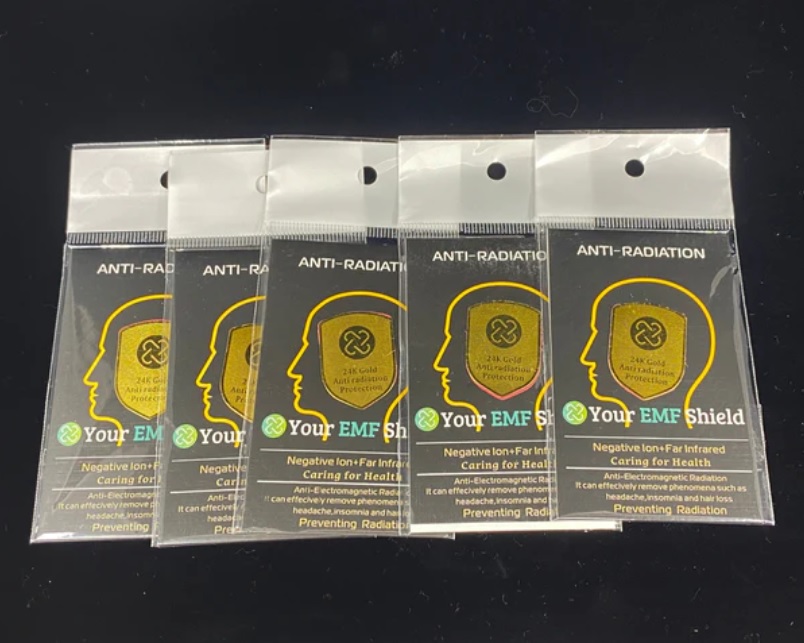Sustainable footwear has a strong foothold in the industry, and Brazil—the world’s fourth-largest footwear producer—is no exception.
A recent study by the IBM Institute for Business Value, which heard from more than 3,000 CEOs in more than 40 countries—including Brazil—pointed out that, for 51 percent of executives, sustainability is the main challenge for the coming years. In last year’s study, sustainability had appeared in sixth place, with 32 percent, which pointed out that the market has been pulling changes in the corporate environment.
In South America’s biggest country, several economic sectors are working on sustainability not only in the environmental dimension but economic, social and cultural as well. The Brazilian footwear sector is one of them. Composed of more than 5,000 factories that annually produce more than 800 million pairs of shoes, the Brazilian footwear industry is one of the largest in the sector and has been pushing the movement for more sustainable production.
“Sustainability is a path of no return, either companies adapt to this new moment or they will be left behind,” Cristian Schlindwein, project manager of the Brazilian Footwear Industries Association (Abicalçados), said. “In the international market, more than 80 percent of consumers put sustainability as a determining issue when buying, and many of them say they pay more for products from sustainable companies.”
And some consumers have taken matters into their own hands.
Isabela Chusid launched Linus four years ago after she was diagnosed with ligamentous laxity, a flexibility condition that requires the use of specific footwear with curves to support the feet, at age 23. While searching for appropriate shoes, she came across the opportunity to come up with an alternative that combined comfort with timeless design, made with the lowest environmental footprint possible. Six months later, with the help of insole specialists, orthopedists, material engineers and designers, Linus was created.
But Chusid is quick to clarify that Linus isn’t a shoe company.
“Linus is a sustainable lifestyle brand; it’s much more than shoes,” she said, one month before the brand’s fourth birthday. “We’re not a shoe company. But we want to be sure that other people also have the same ideas we do, so we’re looking to other products that we can launch. We are looking to new ways to increase out sustainability level, we’re always looking to new materials, new ways to do our logistics, and strengthen our international side.”
But for the time being, Linus is focused solely on shoes—though that will change in the near future, Chusid hinted. Yet one thing will never change, regardless of the direction Linus goes: its commitment to sustainability.
“I always had something with sustainability. It has always been very important for me, [since] I was four years old,” The Forbes 30 Under 30 founder said. “I did a little research and found that many people wanted to buy sustainable shoes, but they didn’t want to have to put a lot of thought into it. I think this is where we really nailed it; we offer a sandal that has all the features that people are usually looking for—comfort, design, price—but we also offer the sustainability [element].”
The sandals are injected with expanded PVC, 100 percent recyclable and free of phthalates. Products of vegetable origin have replaced all the plasticizers and lubricants of animal origin. The People for the Ethical Treatment of Animals (PETA)-Approved Vegan stamp endorses and guarantees to Linus’ clients that their choice is cruelty-free. In partnership with the Brazilian startup of reverse logistics certification Eureciclo, Linus compensates 200 percent of the plastic and paper it produces, recycling more residues than it generates. With Carbonext, an organization that aims to preserve the Amazon Forest, and by purchasing carbon credits from the Envira Amazônia Project, a payment for ecosystem services forest conservation project, Linus offsets twice the amount of carbon it produces in its daily life, from the sandals’ production to its office routine.
“We’re really bothering some big shoes companies right now in Brazil,” Chusid said of Brazil’s first plastic vegan shoe brand. “And it’s really cool to see that they’re changing the way they do stuff, they are becoming more sustainable. Not because they want to be more sustainable, I don’t think they are really worried about it, but because they realize that if they don’t change, they won’t last much longer. I feel really proud to know that [Linus] is helping to change to whole category in Brazil’s market.”
Her sustainable efforts have paid off. Linus saw 700 percent growth during the pandemic, was showcased in New York Fashion Week and was featured on HBO Max’s reality TV series, “The Bridge Brasil.”
Linus is manufactured with 100 percent Brazilian materials, though the DTC brand outsources the actual production. By eliminating the intermediaries, Chusid said, and having a bootstrap attitude, Linus can keep prices reasonable (roughly $58 per pair).
“We’re very honest about the things that we do, what we need to improve, where our costs go. So people love our brand, and [that] allows us to launch any product, and people will buy it; we’re not here to sell shoes,” Chusid reiterated. “We believe that leaders can enter a door to a whole new type of consumption. People have a preconception that consuming more sustainably [means] you have to give away features you wanted, you need to give up the design or you need to pay more. So, when you can offer all the features that people were already looking to and it’s also sustainable, you break this preconception. You change people’s mind, so they realize they can consume in a more sustainable way without too much effort. That’s why we believe that we’re a lifestyle brand, and we want to introduce people to a new lifestyle. A new way of consuming.”

All Pegada models are produced with premium-quality raw materials. To produce them, the company counts on specialized labor and the latest, modern machinery. Courtesy of Pegada
Like Linus, Pegada saw growth during the pandemic.
Born in Dois Irmãos, Brazil, in 1989, Pegada Footwear is one of the biggest Latin America leather shoe manufacturers, producing over 5 million pairs annually. Besides being consolidated in the national market, the brand also exports to more than 80 countries, having offices in Europe, the United States and Canada. It is also present in Latin America and the Middle East markets. The wholesale company has recently started international, but focused on the United States, business with Zappos.
“We were very fortunate because we kept the growth that we were projecting, and I could say that in the second year of the Covid, once one year was gone, the next half year was unprecedented growth for our company,” Engelmann said. “I believe we took a lot of space from some companies that suffered a lot. We succeeded before, after, and during the Covid situation, but we lost a lot of partners in between that.”
But sustainability for Pedaga looks a little different than the others.
With nine production units spread throughout the southern and northern regions of Brazil and over 3,800 employees, the national leader in the menswear sector is present in more than 11,000 points of sale in the Brazilian market. Though the company focuses primarily on leather (90 percent of its shoes are leather), it does offer a microfiber line catered to those looking for vegan products.
“This still isn’t our main focus in the United States right now, but little by little, our presence with this line is increasing in the United States,” Alex F. K. Engelmann, Pegada’s North America representative, said. “You have to make sure you have a sustainable supply chain, because all of our sources are verified and this allows us to have the Sustainable Origin seal provided by Abicalçados in Brazil, which is a desirable seal which we have the Diamond level of it, and this is an internationally desired program because Brazil has done it in order to certify the whole supply chain.”
Abicalçados’ Sustainable Origin program is the only environmental, social and governance (ESG) and sustainability certification in the world, according to Nicolle Trierweiler Frapiccini of Abicalçados. It merits companies in the footwear industry. Based on the best international sustainability practices, it follows the guideline of 104 indicators distributed in five dimensions: economic, environmental, social, cultural and sustainability management. The diamond level is the highest level in the certification, meaning the brand must have at least 80 percent compliance. The certification lasts two years, giving companies a chance to move up—or down—in compliance.

The industrial park of Calçados Beira Rio is one of the most modern in the footwear and accessories sector and has 11 units located in different cities of Rio Grande do Sul. Courtesy of Beira Rio
Calçados Beira Rio is also diamond-level certified by Abicalçados.
“When Abicalçados brought the Sustainable Origin program, it was like a perfect match because we were thinking about this, and we had already taken some actions, but we didn’t know how to communicate [them] to the market, and how [to] use that information to improve and convey [the indicators] to the customers, because they are very interested in these points,” Marcio Oliveira, North America sales analyst of Beira Rio, said.
Beira Rio was founded in the city of Igrejinha, Rio Grande do Sul, in June 1975 with only 18 employees and a modest production of 150 pairs of shoes daily. Today, roughly 10,000 employees across 11 factories in the south of Brazil produce half a million shoes each day. The company serves about 26,000 points of sale, supplying the global retail market with high sales turnover products across its eight brands. As the company has grown, so have its sustainable initiatives.
“We don’t use any kind of materials from animals. Everything that we use and that we don’t use, we have to designate them in the correct way,” Oliveira said, referring to the leftover materials, the scraps, not used in the shoes. “When you produce 500,000 pairs a day, you have a lot of little parts of materials that you don’t use. We have designate the [right] way for these parts.”
From the choice of raw materials to the correct disposal of waste through a selection of suppliers aligned with sustainable practices, the challenge of maintaining sustainability through the structure and the concern for the environment is a top priority for Beira Rio, which is seen through the reuse and resignification of its residues. The raw material, called ambiplast, is transformed into various items like hangers and insoles, found in Brazil and throughout the world.
Though Beira Rio used to use animal products, they were phased out approximately 15 years ago in favor of synthetic and textile materials. The company also harvests rainwater and uses translucent tiles to help save electricity in favor of natural resources.
The Sustainable Origin also takes into consideration a social dimension.
Beira Rio’s Achieving Perfection program is held monthly in all sectors of the company and is an international reference, encouraging employees’ personal and professional growth by offering continuous development for them, where they get to voice their concerns or ideas for improvements across the company. Essentially, it gives everyone a voice, regardless of where they are on the corporate ladder.
“So we have a lot of suggestions every single month and we think that’s a great problem because the people that work in the factory know the things that we have to improve,” Oliveira said. “I think that a great part of the success of the company is because of this program.”

Tnin’s shoes are made of a canvas composed of recycled materials and organic Brazilian cotton. Each meter of its fabric produced eliminates 480 grams of textile waste and eight environmental PET bottles. Courtesy of Tnin Shoes
For Tnin Shoes, sustainability was the driving motivation for launching the brand. Founders Juliana Lawson and Darren Enthoven created Tnin Shoes while living in London. Both were working in the fashion industry when they noticed a gap in the market for sustainable children’s shoes. In 2019, the duo moved to Lawson’s native country, Brazil, to launch the brand. It was only after they decided to relocate to Lawson’s homeland that they realized how beneficial the location would be to their business.
“It was when we moved [here] that we realized how amazing the materials are in Brazil,” Enthoven said, referring to Brazilian rubber, organic Brazilian cotton and the “I’m green” Brazilian sugar cane ethylene vinyl acetate (EVA) used to make the shoe’s insoles. Tnin is the first brand to make sugar cane insoles in Brazil and the second brand worldwide (Allbirds was the first).
“I mean, it’s just mind blowing how huge the shoe industry is in Brazil, right? So much like cities that solely make shoes, you know? It’s like another level,” he continued. “I was blown away by that, from my original experience. So, Brazil was always the destination to produce shoes.”
All of Tnin’s materials are locally sourced, including canvas made from textile waste and recycled PET bottles, recycled denim and non-toxic water-based adhesives. Sourcing these materials was one thing, but finding a factory to manufacture the shoes would prove to be another. With the help of a local shoemaker in the municipality of Franca, São Paulo, Tnin opened its own boutique factory that met its desired sustainability criteria. So, the shoes are handcrafted in its own factory—the second one is opening in 2023—using recycled materials with the goal of zero waste. The outcome? Producing approximately 10,000 pairs a month of everyday-play shoes for kids, bringing a combination of classic European canvas plimsolls with a more contemporary style.
“It was never in my mind to move to Brazil and then manufacture in China,” Enthoven said. “It was always to be sustainable [and] produce locally.”

The production of Carrano’s shoes is carried out by Henrich & Cia, a company with over six decades of tradition and a reference in the global footwear segment. In order to meet demand, Henrich & Cia has three manufacturing plants with over 10 production lines and strict international quality standards. Courtesy of Carrano
As sustainability ramps up in Brazil, many manufacturers are giving leather the boot. Abicalçados’ 2021 Sectoral Report on the Footwear Industry found that leather was the worst performer in terms of value, registering at a decrease in performance of nearly 34 percent.
But not Carrano. Founded in 1992, Carrano has been a purveyor of leather shoes for 30 years, present in over 90 countries and producing over 1,000 new styles yearly.
“We recycle everything, even the little pieces of leather in the end,” Fernando Galhego, Carrano’s export manager, said. “In the end our leather is going to be fertilized. I didn’t know that leather could become a fertilizer, [but] it’s beautiful.”
Producing 10,000 high heels a day for brands like Chloé and retailers like Dillard’s, Carrano takes pride in its work and being Brazilian.
“In your grandmother’s time, all the shoes were made in Brazil, especially women’s shoes,” Galhego said, acknowledging the return of manufacturing to the country versus China. “Brazilian shoes were always recognized as good products. You can count on Brazil.”




